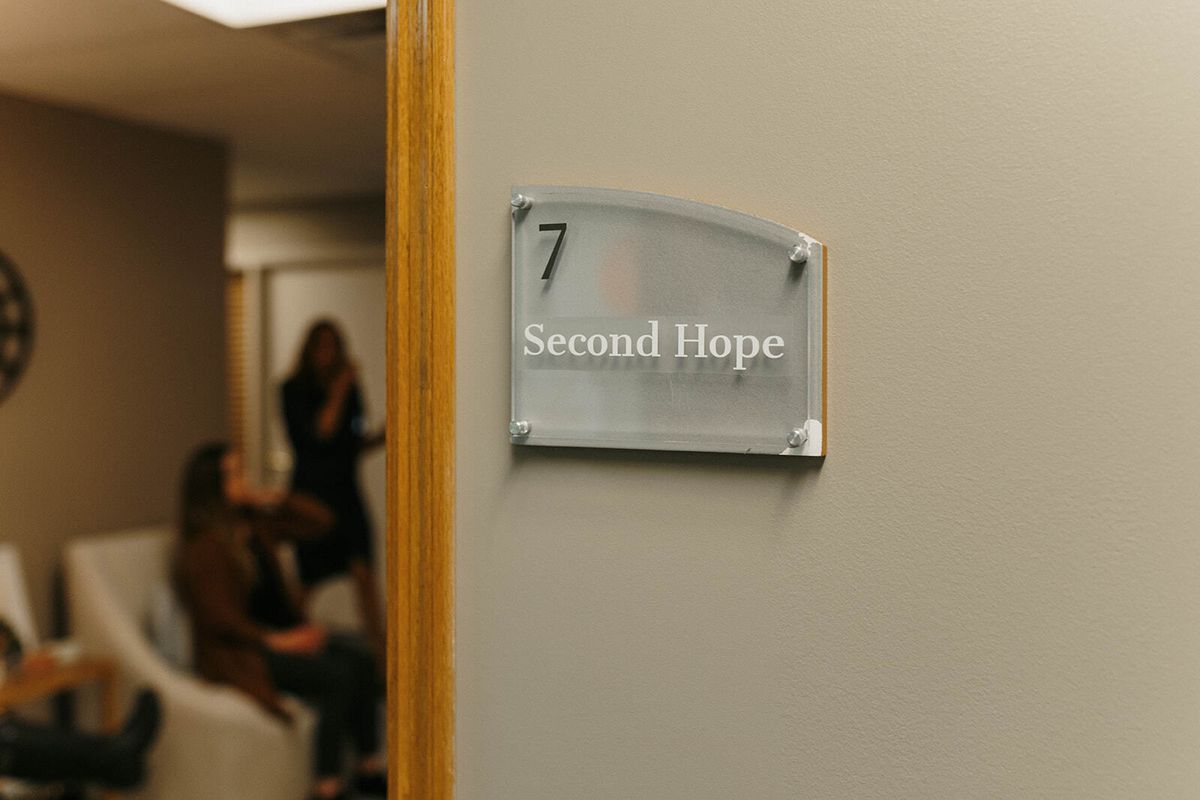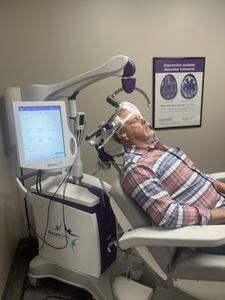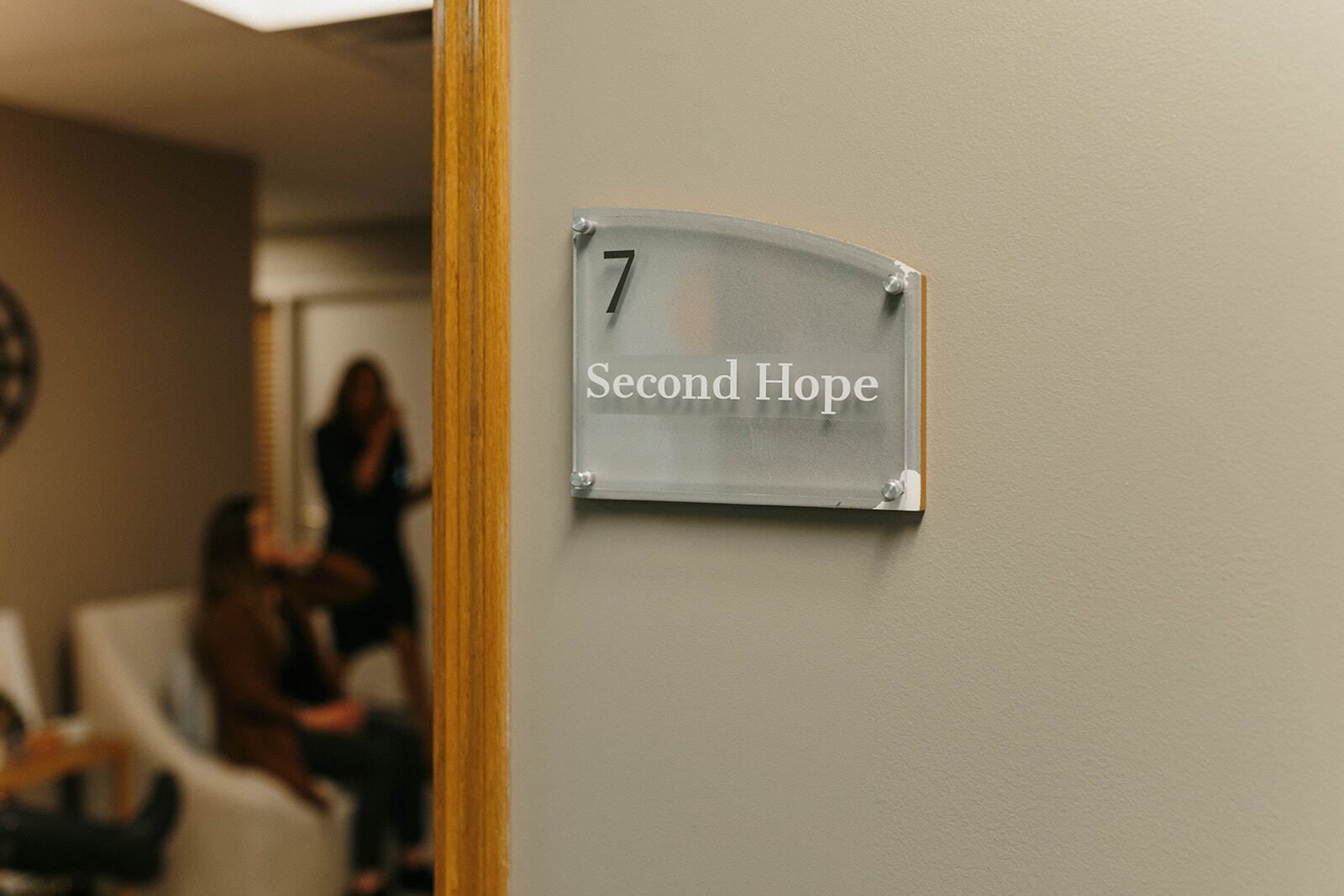In partnership with:
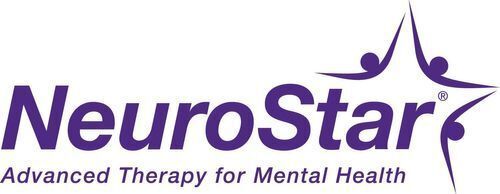
NeuroStar Transcranial Magnetic Stimulation
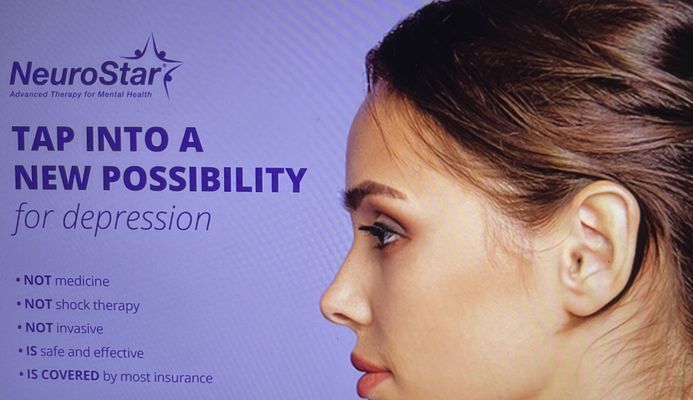
-
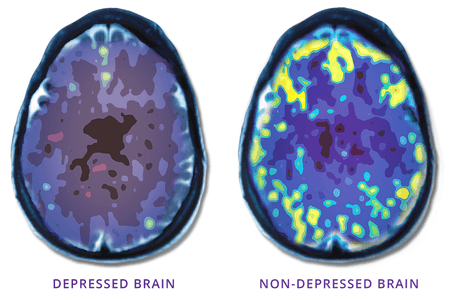 Depressed Brain Vs. Non-Depressed Brain
Depressed Brain Vs. Non-Depressed BrainNo one is completely sure what causes depression . Depression may seem like an emotional problems, but there is a physical component in the brain too. We do know certain areas of the brain show less activity in people with depression than in people without depression. This image is a PET scan, which shows functions like blood flow, oxygen use, and blood sugar (glucose) metabolism are decreased in the depressed brain. The loss of activity can lead to an imbalance in the brain's main neurotransmitters ( serotonin, dopamine, and norepinephrine )also associated with depression
-
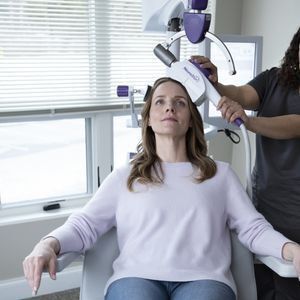 Treating Depression
Treating DepressionTreating depression is difficult and medications don't always work. With every new medication you try, your chances of feeling better go down. At the same time, the likelihood that you will stop taking your medication because of side effects goes up with each new drug you are taking. STAR*D is the largest and longest independent study of depression treatments ever conducted. More than 4000 people participated in the study. This study showed 7% of people who are on their fourth medication actually feel better. At the same time, 41.4% of patients stopped treatment due to side effects after 4 different medication attempts.
TMS direct line: 402-669-7646
Does it Work?
In a study of "real world" outcomes ( actual NeuroStar patients ), 83% of people who completed the full
NeuroStar treatment cycle experienced a measurable decrease in the severity of their depression. And 62%
of those completing the treatment saw full remission, meaning their depression went away.
Does it Hurt?
While there may be some minor discomfort, where the device touches your head,
it generally subsides within the first week of treatment.
There is no sedation or impact on your alertness.
You can watch TV, or talk with your treatment coordinator during your session and drive home immediately after your treatment.
Each treatment lasts 18 to 20 minutes.
Is My Insurance Going to Cover it?
NeuroStar TMS is covered by most major insurance companies.
If you or someone you know is experiencing major depression, anxious depression, or obsessive-compulsive disorder (OCD)
TMS is a treatment option offering safe and effective results.
We are in network with Aetna, Cigna, BCBS, Midlands Choice, UHC and UMR.
We are not in network with Nebraska Medicaid or Medicare.
-
A complete health assessment including past and present physical, emotional and spiritual concerns will be reviewed.
Learn More. -
Your first appointment will be 1 hour and follow up visits will be 15 to 30 minutes.
Schedule.
What people are saying about Second Hope
Our mission is to provide care, encouragement and education to those who are ready to hear about treatment options for depression and anxiety.
-
"After 20+ years without changing my meds (and knowing that it was time), I found Kimberly Anderson and am SO HAPPY that I did! She not only listened to what I had to say about my past and present situations but gladly put me on the right track. She is a tremendous asset to her office and the community!"
-
"For the first time, I was able to have a psychiatrist walk me through the science behind mental illnesses and why certain medications or alternative practices work better for some people. Felt extremely safe telling my story and feel very hopeful for the future and the plan Kimberly has for me."

